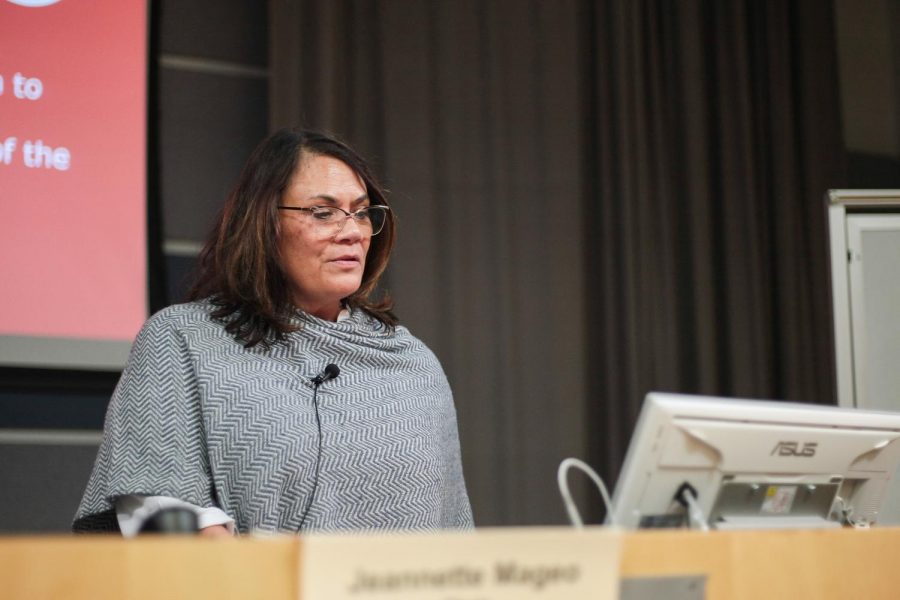WSU faces lack of state funding, space in classrooms
About 70 percent of campus buildings are in ‘poor’ condition
BEN SCHUH | DAILY EVERGREEN FILE
Stacy Pearson, WSU vice president of finance and administration, gives a presentation on WSU athletics department’s debt at the Faculty Senate meeting Feb. 7 at the Food Science and Human Nutrition Building.
December 6, 2019
WSU’s associate vice president of facilities services said about 70 percent of campus buildings are in poor condition or worse during the last WSU Faculty Senate meeting of 2019 on Thursday. Together it would cost over $450 million to renovate or replace them.
Associate Vice President Olivia Yang said the main problems with university infrastructure are the lack of classroom and lab spaces, and the money that the university gets to cover operations and maintenance costs. One reason for this is that operations and maintenance money is not adjusted for inflation.
She said the state gave the same amount of money for Bryan Hall, which was built in 1909, that it gave for buildings finished in the 21st century.
The Facility Condition Index rates the condition of campus buildings using a ratio of cost-to-repair over cost-to-replace model, Yang said. Of the 101 buildings examined, 71 of them are either in poor condition or worse and together it would cost $463 million to renovate or replace them.
“I’m not making this sh-t up,” Yang said.
This year, WSU administration will approach the capital budget request process differently, said Stacy Pearson, WSU vice president of finance and administration. Instead of thinking about what buildings are needed, the process will focus on the needs of departments themselves and figure out the best approach.
“We want to help you solve the problem,” Yang said. “Instead of you telling us what you think the solution is we want to help you formulate what that solution is.”
Matt Carroll, CAHNRS senator, said the needs-based, collaborative approach to capital budget requests is a welcome change from previous years. He said previously faculty were not as involved with the process.
The senate unanimously approved all action items and discussed a class attendance and absences policy revision, which will be voted on at the next meeting. The full list of approved items can be found on the Faculty Senate website.
The senate meets again at 3:30 p.m. on Jan. 23 in the Food Science and Human Nutrition building, Room T101. Holly Ashkannejhad, director of the WSU Civil Rights Compliance & Investigation, Karen Metzner, director of the WSU Center for Community Standards, and Shannon Scott, assistant professor of music, will speak to the senate.










